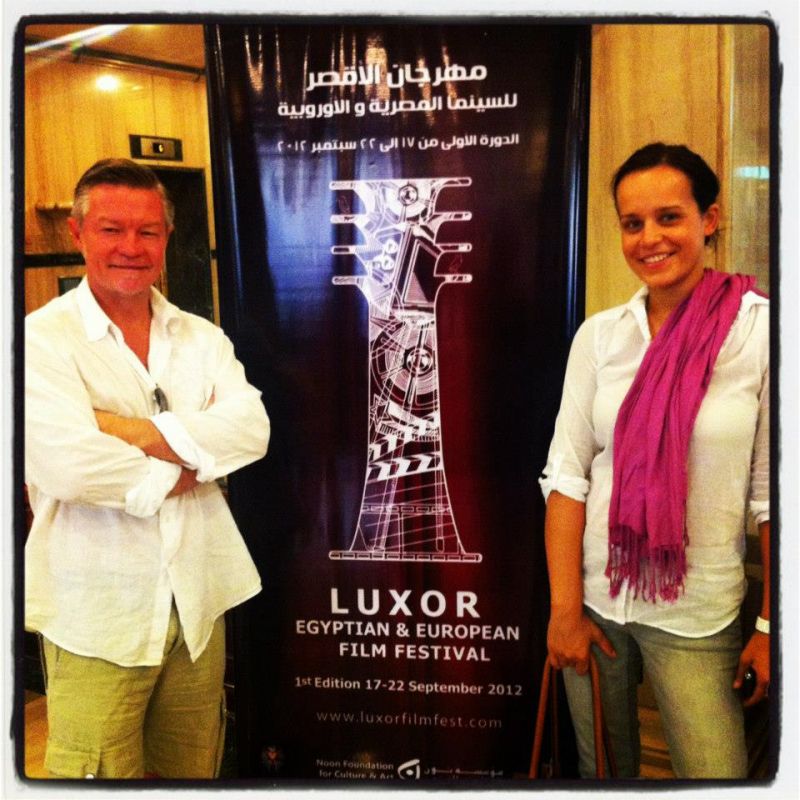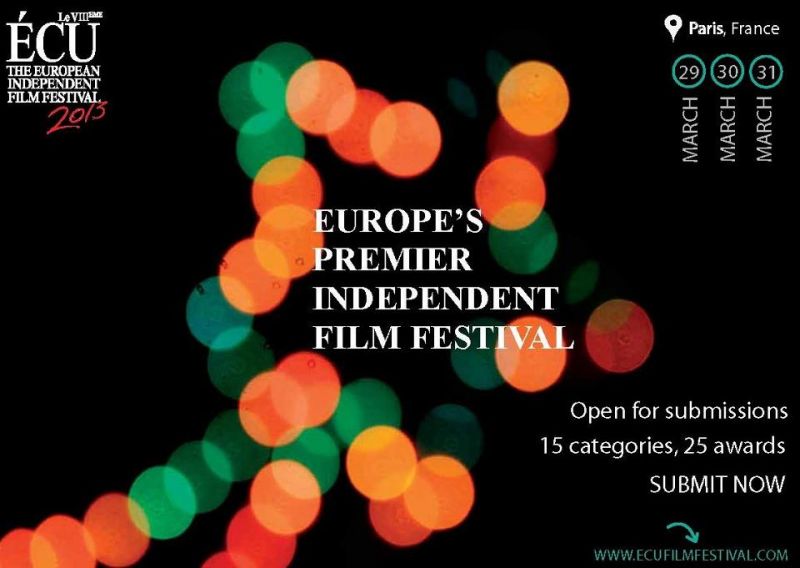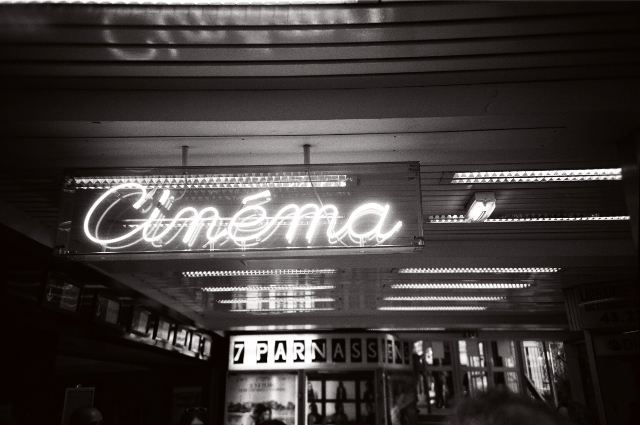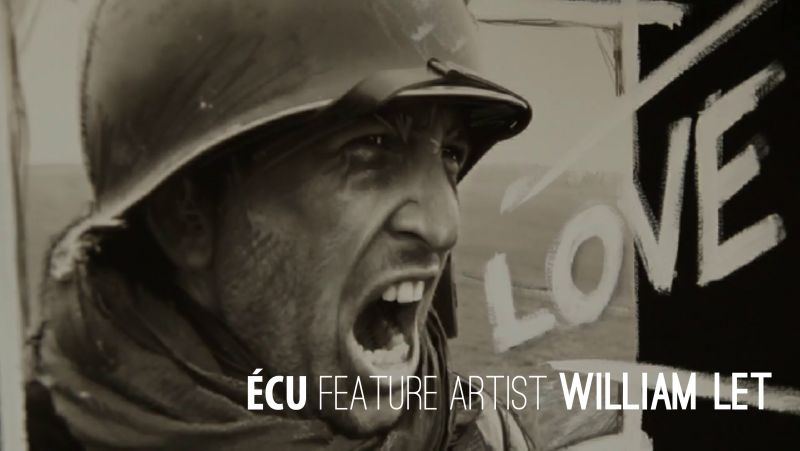|
|
||
|
Pro Tools
FILMFESTIVALS | 24/7 world wide coverageWelcome ! Enjoy the best of both worlds: Film & Festival News, exploring the best of the film festivals community. Launched in 1995, relentlessly connecting films to festivals, documenting and promoting festivals worldwide. Sorry for the interruption, we needed to correct and upgrade some modules. Working on a new website. For collaboration, editorial contributions, or publicity, please send us an email here. You need for put your full detail information if you want to be considered seriously. Thanks for understanding. User login |
ÉCU-The European Independent Film FestivalÉCU - The European Independent Film Festival is dedicated to the discovery and advancement of the very best independent films from around the world. We are a festival who believes in our independent filmmakers and their artistic talents. ÉCU proudly provides a unique platform that brings together diverse audiences who are hungry for something other than major studio productions and original and innovative filmmakers.
The 16th edition of ÉCU - The European Independent Film Festival will take place on 9th-11th April 2021. Now open for submissions!
For more details regarding the festival, please visit our website at www.ecufilmfestival.com.
 Meet Indie Filmmaker: DEADSIDE
What would you be willing to sacrifice? DEADSIDE, directed by Mark Triller and an ÉCU 2010 Student Film submission is a psychological-thriller short about a couple who have to make an untimely decision. By Lindsay Mayer Q: Explain what your film is about. The film is about the bond parents have to their children, specifically the heartache of loss, and confronting mortality. Losing a child can be unbearably grievous, more so than the loss of a parent or spouse. And a loving parent will do anything for their child. So rarely is there a chance to prevent or even reverse the loss of life. One lives with it, but one never ‘gets over it.’ I wanted to tell a story about parents who pursue an opportunity to undo their loss and thus their grief, even though it may appear selfish. They didn’t ask for what happened, and they didn’t deserve it. Taking this chance could damn them forever, but because of their unconditional love they will sacrifice anything, no matter what the cost. And even though, in the end, a spent life is sacrificed for a new life, it’s worth it. Q: What was the source of inspiration for the story? There were several factors that influenced the story. Initially, I found writing the film a type of valediction to my biological father with whom I never had a relationship. But in writing, I felt I was also commending my stepfather, who has been my dad since I can remember; so, my fathers, for one. Having grown up in West Africa and learning about the way different cultures regard and cope with grief further influenced my choice of introducing the voodoo subject matter. I am also an avid fan of psychological horror, especially in videogames. The Japanese videogame Silent Hill, in which characters become trapped in a personal purgatory of sorts, really appealed to me. The Deadside where Malika [the wife] is taken could almost be a manifestation of her character’s ambivalence, as she is torn between the choices she makes. Q: Tell us a little bit about the casting process. How did you choose the actors and actress? We sent out excerpts of the script, as well as additional character specific scenes which do not appear in the movie, in order to give the applicants more content to perform from. It was the first proper casting session for me, so I was initially uncertain about what I was going to do. We were looking for naturalistic actors, who used their instincts to guide their performance so it would be more believable to an audience. But because most of the audition scenes were emotionally charged, I felt it could be difficult for them to deliver an intense performance in a matter of minutes, perhaps even forcing them to use their own emotional memory as a trigger instead of the character they were reading. So we gave them a scarf to hold without telling them what it represented, and for some reason this relaxed them. In the end, we selected the actors who showed they had really invested themselves in the character, their impulses and senses. T’nia Miller (Malika) insisted on sitting close up while reading her scene because she felt it was an intimate moment for the character and she couldn’t feel it from the other end of the room. I felt immediately that she would bring a natural quality to the performance. Andrew Shire (Shepard) came to the audition with a list of questions about the character, some traits of which he felt didn’t ring well, and I could see he had spent time involving himself in this character’s situation. Oris Erhuero (Kafele) said that the witch doctor’s spiritual beliefs mirrored his own, but the character needed to be smoking herbal plants. These actors were ideal for the part because I felt they had assimilated the information in the script and made the characters their own. Q: Were there any difficulties you encountered during shooting? With over a hundred shots, we were always against time, but our First AD was very efficient. Time is always the main enemy for me, the second being weather. When the time came to do our exterior shots, which we had labored over in the scheduling of the shoot, it decided to snow. We lost the chance to do those shots and had to pick them up a few weeks later. They say never work with children or animals. I’ve never worked with children younger than my brother. And this time we had a baby on set, in four 30 minute slots, to achieve about ten shots. It was quite demanding for me as a director but also for the crew, as the baby, Lewis, was constantly crying. He was either hungry or cold or cranky, as babies usually are. But we got all our shots. I felt bad for our producer as he was working with animals on another film. Q: Why did you decide to shoot the film in this particular style? I intended for the look of Deadside’s visuals to combine the gritty image of Cinema vérité and the stylized look of commercial cinema (what maybe French critics called Cinéma-du-look in the 70s); the cinema of truth versus the cinema of larger than life. I suppose it was a bit experimental for me. I feel that contrasting two properties can produce something entirely different. I wanted to put an emphasis on naturalistic elements: texture, shape and shadow, which have strong qualities of realism; but manipulate the space, performance, and perspective. This, I think, creates a reality that is unique to the film. It was also envisioned as a genre film, horror, held together by an emotional thread. And while the scope of the setting dwarfs these character’s problems, I wanted to give an audience an impression of intimacy with them. Q: The costuming in this film is fantastic. Who designed it? I pestered the costumed girls quite a bit, but I’d like to think their lives were made easier by being involved in the production at a very early stage. I gave Ilishio Lovejoy, the costume designer, some preliminary sketches and ideas before the cast was selected. We talked a lot about the costumes as a reflection of the characters. The witch doctor’s clothes are a combination of old and new items, presumably things he collected over the years, a marriage between African heritage and the urban city. Malika’s costume is a light red, the color being a representation of death, birth, sin, love, and innocence. Shepard’s costume was fairly nondescript at the beginning. But Ilishio pointed out that there was nothing to make him stand out from the set. So it was her idea to implement the red in his costume as well as the baby’s blanket, and it worked. Q: Tell me about your next project. I have several ideas which I am working on at the moment, one of which is a horror feature film, another which is a short film about pathos. I like to shoot films which are character driven and dare I say humorous, on the dark side. 01.02.2010 | ÉCU-The European Independent Film Festival's blog Cat. : actress Andrew Shire (Shepard) deadside designer Director Entertainment Entertainment Euthanasia Films Guzaarish Independent films Jaideep Ahlawat Lewis Lindsay Mayer mark triller Mark Triller Oris Erhuero Producer Quotation Religion Religion Technology Technology West Africa Independent Interviews FILM FESTIVALS PEOPLE
|
LinksThe Bulletin Board > The Bulletin Board Blog Following News Interview with EFM (Berlin) Director
Interview with IFTA Chairman (AFM)
Interview with Cannes Marche du Film Director
Filmfestivals.com dailies live coverage from > Live from India
Useful links for the indies: > Big files transfer
+ SUBSCRIBE to the weekly Newsletter DealsUser imagesAbout ÉCU-The European Independent Film Festival Hillier Scott Hillier Scott (ECU)
Scott Hillier, Founder and President of ÉCU - The European Independent Film Festival
Scott Hillier is a director, cinematographer, and screenwriter, based in Paris, France. In the last 20 years, Hillier has gained international recognition from his strong and incredible cinematography, editing, writing, producing and directing portfolio in both the television and film industries.
Scott began his career in the television industry in Australia. In 1988, he moved to London getting a job with the BBC who then set him to Baghdad. This opportunity led him to 10 years of traveling around world for the BBC, mainly in war zones like Somalia, Bosnia, Tchetcheynia, Kashmir, and Lebanon. After a near fatal encounter with a Russian bomber in Tchechnyia, Hillier gave up his war coverage and began in a new direction.
He moved to New York City in 1998. He directed and photographed eight one-hour documentaries for National Geographic and The Discovery Channel. Based on his war knowledge and experience, Hillier wrote and directed a short film titled, “Behind the Eyes of War!" The film was awarded “Best Short Dramatic Film” at the New York Independent Film and TV Festival in 1999. From that he served as Supervising Producer and Director for the critically acclaimed CBS 42 part reality series, "The Bravest” in 2002 and wrote and directed a stage play called, "Deadman’s Mai l," which ran at Le Théâtre du Moulin de la Galette in Paris during the summer of 2004. He then became the Director of Photography on a documentary titled, “Twin Towers." This was yet another life changing experience for Hillier. The riveting documentary won an Academy Award for "Best Documentary Short Subject" in 2003. In 2004, Hillier changed continents again, spending three months in Ethiopia. He produced “Worlds Apart,” a pilot for ABC America / True Entertainment / Endemol. As you can see, Hillier was and is always in constant movement and enjoys working in a number of diverse creative areas including documentaries, music videos, commercials, feature and short films.
Scott studied film at New York University and The London Film and Television School. He also studied literary non-fiction writing at Columbia University. Hillier's regular clients include the BBC, Microsoft, ABC, PBS and National Geographic. Between filming assignments, he used to teach film, a Masters Degree course in Screenwriting at the Eicar International Film School in Paris, France and journalism at the Formation des Journalistes Français in Paris, France.
View my profile Send me a message The EditorUser contributionsUser links |



























